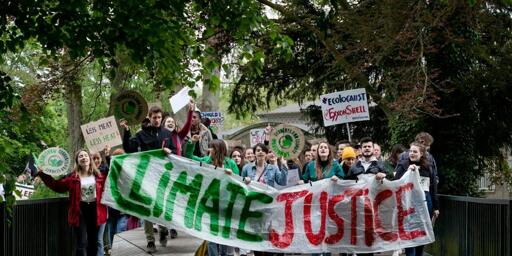

This is the second time that Switzerland faces a negative inflation rate after March 2021.
Something like this is bad if, and only if it persists (which may not happen here). Although a negative inflation increases the purchasing power of consumers, it could soon lead to a delay in consumption (consumers will simply wait for prices to decrease further), which can then delay investments and thus hurt the economy.
For now it seems that there is no reason for panic, though. Many Swiss economists have been expecting that, arguing that the current negative inflation is imported due to a strong Swiss franc (which is what the article seems to suggest) that reduced the price for imported goods. The downward trend was mainly driven by sharper declines in transport prices (-3.7% in May vs -2.6% in April), and in food and non-alcoholic beverages (-0.3% vs -0.8%).
On a monthly basis, the consumer price index inched up 0.1% in May compared to April. The Swiss core inflation (which excludes some volatile items such as food and energy) reached also a new low but remained positive in May at 0.5%, according to the Swiss Federal Statistics Office.
Economic forecasts see the inflation to go further down by the end of the second quarter 2025, and will increase to positive rates for the whole year 2025. But we might soon see negative interest rates in Switzerland for some time due to a strong national currency.
Addition:
There is a Morning Star / Dow Jones report on it:
[Swiss National Bank] Chairman Martin Schlegel has previously said that negative inflation was possible, and didn’t rule out negative interest rates. However, he has said the bank wouldn’t be guided by individual monthly inflation prints, but rather price stability to decide policy. The SNB expects inflation to average at 0.4% this year …
Switzerland faces “mild deflation until mid-2026”, Pantheon Macroeconomics senior Europe economist Melanie Debono said in a note to clients after the inflation print … Given May’s data, that is “enough for a jumbo cut” to bring the SNB to negative rates this month, she added.
So it could be that I will stand corrected with my statement of a projected positive Swiss inflation for the entire 2025 and we’ll see this by mid-2026 as Ms. Debono says (but I like the term “jumbo cut” :-))

Among the few thing that are clear until we see the final legislation is that there will be two digital euros: the offline and the online version.
With the offline digital euro, you will be able to bump up a digital wallet on your smartphone (or a smart card instead). The offline version’s key feature is that only you and the person who receives the payment will have access to the transaction data, while compliance checks are performed when you load up your wallet (or card) with your bank.
The offline version might have, however, anti-fraud features to prevent forgery. It is said that no private data will be used for these anti-fraud checks, but it is unclear yet how this will be done.
There is also a discussion to introduce a limit a citizen can hold ‘offline’ (this is largely to prevent money laundering, the latest number I read was a limit of EUR 3,000). As everyone can have multiple accounts and multiple wallets, it is also not clear yet how the central bank would link your multiple wallets to your identity to impose this limit without knowing your identity. For now the latest proposal by the central bank mentions “unique identifiers”, but it’s unclear yet how they’d work.
If you pay with the online digital euro, all transaction details will be logged, very much as it is done with current online payment systems. According to the proposal, however, the central bank would only see pseudonymous transaction data, it won’t see your identity. Only your bank has full access to both sets of information. (However, if just a single transaction links your account to your identity, all your transactions are exposed.)
There are a lot of issues to clarify until the final legislation, but as @burgerchurgarr@lemmus.org already said, it depends not in the least what we do in the future. As with everything else, as long as we live in a free society that holds up democratic values, it will likely be fine, but any future government with an autocratic stance could change the law.